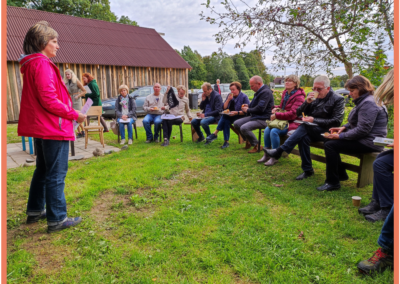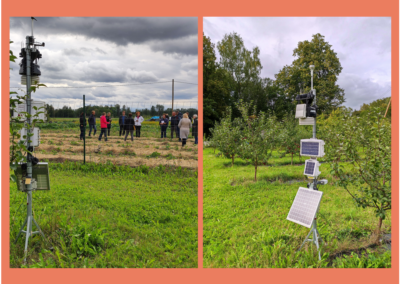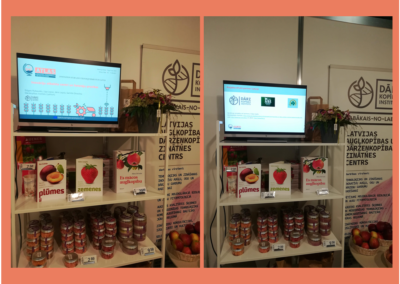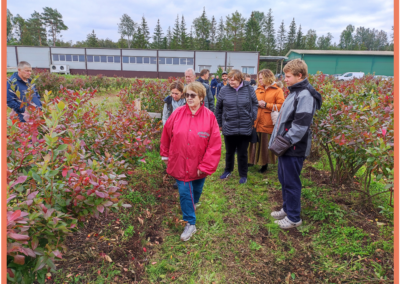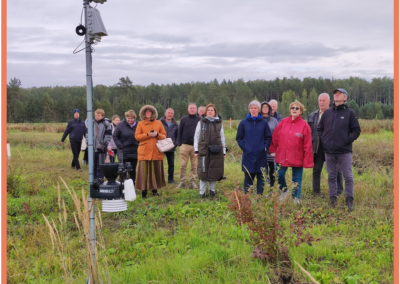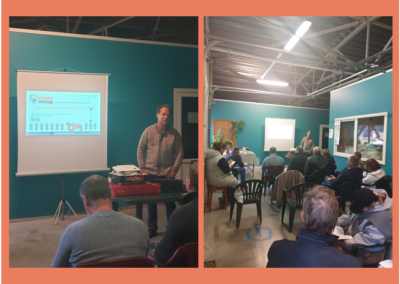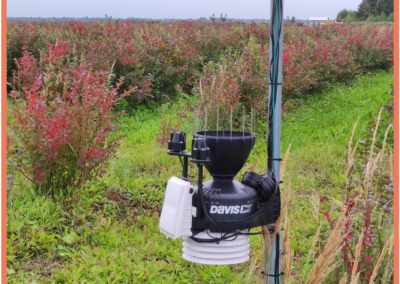2021 summer of Innovation Hubs in Latvia
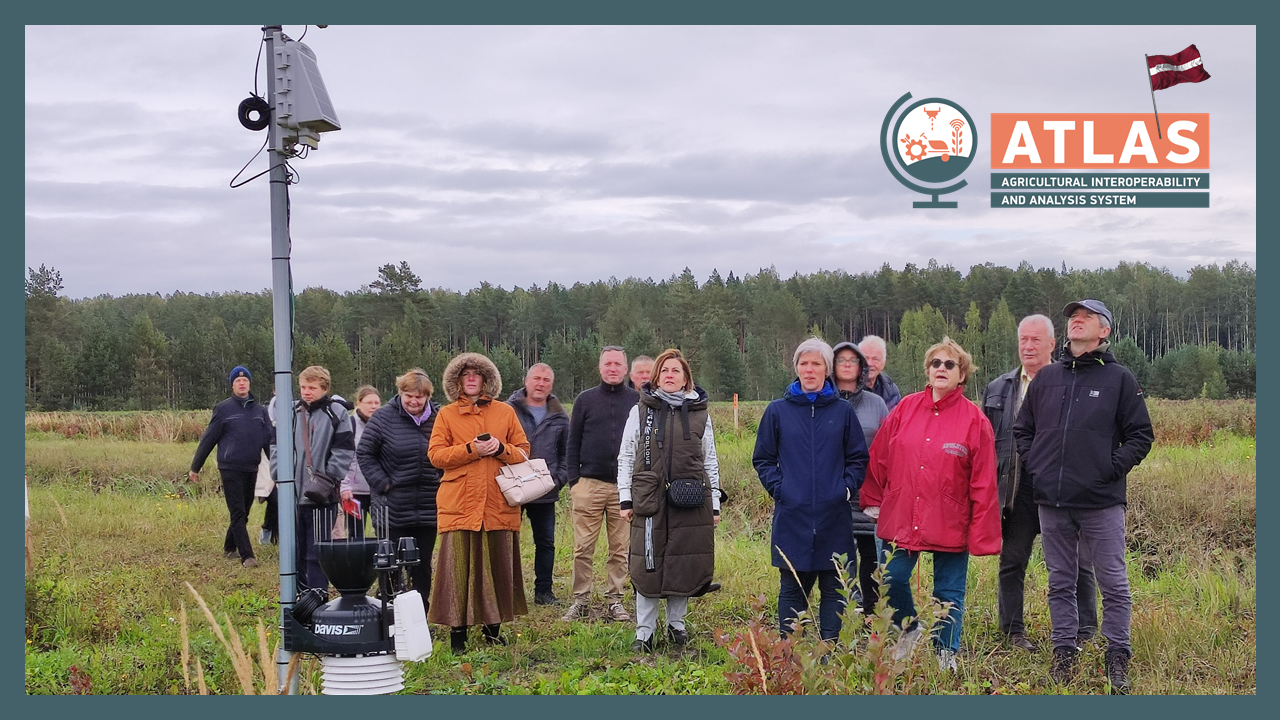
The summer of 2021 surprised with unexpected hot weather, exceeding long-term average observations. It was reflected also in the data of weather stations and sensors installed in the farms involved in the project. During spring time an on-line meeting was organised by Institute of Horticulture (LatHort) that gave the opportunity to share information about Innovation Hubs, perspectives of observed meteorological and environment data as well as the user requirements in Latvia. Due to a pandemic situation the open field meetings were terminated in spring and at the beginning of summer.
The conditions for information sharing and interaction with farmers were difficult. On July 22 the field day was held in farm Eglāji – the orchard of almost 12 ha of irrigated apple trees, equipped by Davis meteo station with additional sensor nodes in the orchard. Hot and dry weather probably was the main reason to gather 48 stakeholders in orchard management, particularly interested in irrigation. It should be noted that orchard irrigation until now has not been common practice in Latvia. The field day was a place where applied science came together with representatives of industry, suppliers and farmers. For overview some pictures available in the gallery.
After a year break, the autumn field day in LatHort again was organized on September 3, 2021. With respect to pandemic restrictions, only field visits of experimental orchards, fruit and berries exhibition and slide show of ATLAS project presentation were offered for attendees. Due to pandemic related restrictions 45 visitors were attending the event. Some insights in field day available in the gallery.
A little overview and insight in ATLAS for organic vegetable growers was presented in the field day (September 6, 2021) at farm “Puteņi” – L. Mucenieces farm in Kaibala parish. There were 19 visitors, whose main interests were related to strip-cropping, intercropping, catch-crops, green manure application, implementation and promotion of a set of environment-friendly technological solutions, where weather conditions play a significant role. The weather station using opportunities were demonstrated and discussed. The using of smart technologies in horticulture are focused also in another Horizon 2020 project SMARTPROTECT implemented in LatHort, which is aimed to stimulate knowledge flow in the regional AKISs across the EU and connect these on the innovative potential of advanced methodologies for Integrated Pest Management (IPM) in vegetable production, integrating precision farming technologies and data analytics. The importance of irrigation, especially data-driven irrigation was highlighted, where some approaches could provide ATLAS generated solutions.
“Riga Food 2021” – a major Baltic food industry fair in the region. It yearly outlines the trends of the food industry development, highlights novelties and presents a number of serious and trustable enterprises. During September 9 to 11, 2011 there were expected participants of 300 companies from 15 countries – Latvia, Lithuania, Estonia, Poland, Austria, Belgium, Czech Republic, Italy, Canada, Spain and other countries. The Institute of Horticulture (LatHort) had stand in the exhibition and possibility to demonstrate slide show about ATLAS project to visitors introducing them to project activities, Innovation Hubs, perspectives of using weather data as well as the user requirements in Latvia to promote more safe food production in horticulture with environment-friendly technological solutions.
In field day at farm “Arosa-R Ltd.” (Melnā oga) on September 23 registered 14 participants – mainly blueberry growers. The farm is managing more than 50 ha of blueberries. During field day the discussions about the necessity of disease support system importance took place, beside actualities on blueberries management – bush training, fertilising and plant protection. The smart irrigation based on the data on soil moisture, total evapotranspiration and precipitation were stressed. The importance of environment data – temperature, moisture etc. was recognised as significant in the process of farming, e.g. overwintering of plants (shoots and buds), diseases development in the period of vegetation and needs of phytosanitary actions.

